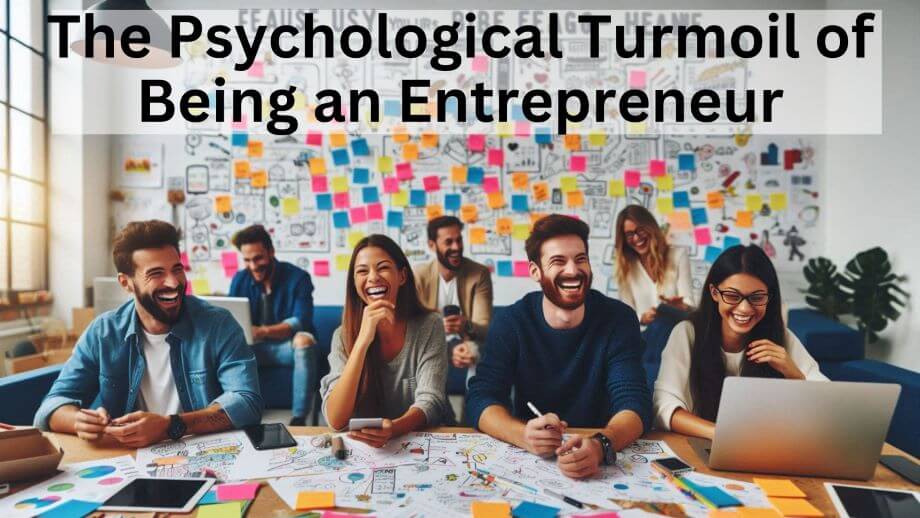Making money is not hard.
From an intellectual point of view, it is not hard at all. Practically, anyone can create the equivalent of a lemonade stand and start making money in their first year. My first business in Canada was a dance school. My partner and I rented a dance studio by the hour, we used social media to tell our friends and within a couple of months we were profitable.
Psychologically, however, making money can be more difficult. Many people have money issues, such as fear of failure, negative money beliefs, imposter syndrome, procrastination, and perfectionism which can prevent them from making money.
According to Warren Buffett, you don’t need to be too smart to make lots of money, “You don’t need to be a rocket scientist. Investing is not a game where the guy with the 160 IQ beats the guy with a 130 IQ.” If it was about smarts, most college professors would be rich, which is not the case.
The capacity to make money depends on many factors such as:
- Resilience
- Optimism
- Risk-Taking
- Self-Motivation
- Ambition
- Self-Confidence
If People Love You, They Will Try to Hold You Back
We are taught, pavlovian style, that if you keep on burning your hand on the stove, you shouldn’t put your hand on the stove. However, entrepreneurs often don’t respond to this self-protection instinct and they continue putting their hand on the stove until one day, it doesn’t hurt any more.
If you have family and friends, they might say, “What are you doing, John? You could have a regular paycheck if you just get a regular job. You will have money to pay the rent, buy groceries, and maybe pay for your daughter’s piano classes, just get a job.”
You might respond, “I have to try this idea. I can’t stop thinking about it. I know that it will work.”
Your wife might counter, “But you have been trying it. You have been at it for two years, and we are getting deeper in debt. Go back to your old job, get a new one or I am divorcing you.”
This societal pressure is hard to overcome. Most likely, the people who wants you to get a job they are right. And what makes things worse is that the probabilities are against you. Most entrepreneurial endeavors are failures the first time, and the second time, and the third time. The statistics are against entrepreneurship. This doubt can creep into your mind, making you think, “Maybe she is right. Maybe I suck at this.” And you listen to her and you stop trying, or you leave your wife, or your wife leaves you. Either way the social cost that you pay could be huge.
Entrepreneurship: A Masochistic Activity
Being an entrepreneurs is a masochistic activity. You have to be out of your mind. A well adjusted person is going to take the job. A well adjusted person should take the job that pays them well, that allows them to be with their families on the evenings and on weekends, and maybe, just maybe, have a hobby, like painting, dancing, or taking yoga classes.
If you are an entrepreneur you are working all the time, you will not hesitate to get up at 3:00 am to answer some customer’s question. You will notice at 1:00 am that something is not working on your website and you start watching YouTube videos to find a way to repair it. You have to fix it as soon as possible.
The life of an entrepreneur SUCKS. There is nothing good about that.

The Dark Side of Entrepreneurship
Many entrepreneurs come from a place of trauma, abuse, abandonment, validation seeking, imposter syndrome, escapism, people-pleasing, guilt, or shame, and cultural pressures. Entrepreneurs are people that for one reason of another never reach self actualization. People who feel they can never be good enough.
For example:
Elon Musk was bullied when he was a little kid and he had a tough relationship with his father.
Steve Jobs: Jobs was adopted and struggled with feelings of abandonment.
Howard Schultz: The former CEO of Starbucks grew up in a poor family and witnessed his father’s struggles with unemployment and health issues.
Oprah Winfrey: Experienced extreme poverty and she was raped many times, by a family member, when she was 9 years old.
Richard Branson: Branson has dyslexia and struggled in school, which led to feelings of inadequacy.
Jeff Bezos: Bezos’ father left when he was very young, and he was raised by his mother and stepfather and struggled with feelings of abandonment.
Larry Ellison: The co-founder of Oracle was raised by his aunt and uncle after his biological mother gave him up for adoption, he also struggled with feelings of abandonment.
Convicted ex-president Donald Trump. He went into business and then into politics because he was always searching for his father’s validation.
Conclusion
If you are a normal person, that does normal things, and are happy with what you got in life, which is the way it should be, entrepreneurship shouldn’t make sense for you.
However, if you have a maniac personality, or if you want to satisfy a thing that you can never satisfy, then entrepreneurship is for you.
Entrepreneurs are wired different, and not in a good way, they are often driven by deep-seated issues. But society needs them. Someone has to start companies such as Apple and Microsoft, where some more rational person can have cozy job with a regular paycheck and health benefits.
Other Personal Development Posts
